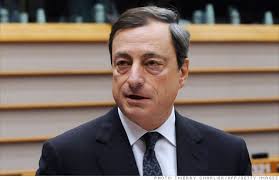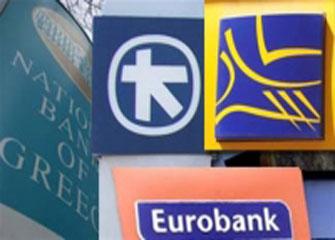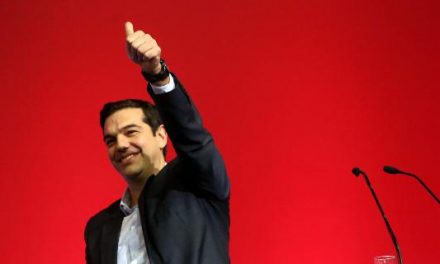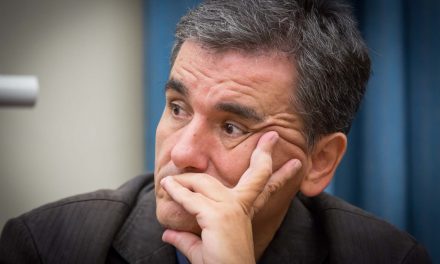by Jenny Cosgrave, CNBC
European Central Bank (ECB) chief Mario Draghi dismissed fears of a Greek default and a bubble in bond markets at his regular press conference in Frankfurt on Wednesday, after the central bank held interest rates steady.
Draghi said he was not ready to even “contemplate” a default by Greece, as ECB policymakers approved increasing emergency funding for Greek banks to as much as 80 billion euros ($85 billion), according to media reports.
“Based on the Greek government leaders’ statements this option is not contemplated by themselves as well. So I am not ready to discuss any possible situation like that,” Draghi told reporters in Frankfurt on Wednesday, speaking on Greece defaulting on repayments to its international creditors.
Greece risks default without additional funds to stay afloat. Athens sold 812.5 million euros of three-month Treasury bills in the second of two auctions on Wednesday, in an effort to raise some much needed cash.
No end date to Greek ELA, euro lending boost
Draghi said that while there is no end date for the Emergency Liquidity Assistance (ELA) that the ECB is providing to Greek banks, ELA funding was “entirely in the hands of the Greek government and the negotiations that are taking place between the Greek government and the euro area members”
Opposition member of the Greek parliament told CNBC a Greek default would be “completely catastrophic” on Wednesday and should be avoided at all costs. Meanwhile, German Finance Minister Wolfgang Schauble said Tsipras’ government had set back Greece’s economy, which had been improving.
A protester briefly disrupted the press conference during President Draghi’s opening remarks.The protester jumped up on the table in front of Draghi, dumping white paper confetti on the central bank chief. ECB security is “investigating the disruption,” according to a representative for the central bank who declined to comment further.
Earlier on Wednesday, the central bank left its main interest rate unchanged at a record low of 0.05 percent, one month after the launch of its 1 trillion-euro ($1.1 trillion) quantitative easing (QE) program.
An ECB survey published Tuesday showed lending in the bloc—which QE is aimed at stimulating—is on the up. The quarterly survey said euro zone banks had reported a “further net easing of credit standards on loans to enterprises.”
Demand for business loans also rose in the first quarter, the survey showed, an encouraging sign that the bloc’s chronically weak credit activity is gaining strength.
In March, the ECB began buying government bonds and other forms of debt at a rate of 60 billion euros a month, having originally announced the program in January.
“With sovereign QE having gotten off to a satisfactory start in March, when the ECB exactly met its 60 billion euros a month purchase target, there is no apparent need to tinker with the main parameters (monthly size, asset split, duration) of its asset purchases,” said Robert Kuenzel, director of euro area economic research at Daiwa Capital Markets Europe.
‘No evidence’ of bubble
A Bank of America Merrill Lynch survey released on Tuesday showed that a record number of investors thought bonds were overvalued. However, Draghi said in his press conference that there was “no evidence” of a bubble forming in bond markets. He added that the ECB was “carefully monitoring” the situation.
Sovereign bond yields, which run inversely to prices, are at or near negative for a high proportion of European countries—a situation that Goldman Sachs described as the “new normal” on Tuesday.
Potential fears over the scarcity of government bonds being bought under the ECB’s bond-buying plan are “exaggerated,” Draghi said.
“We don’t see problems. Both direct and indirect evidence and market feedbacks show that there isn’t any problem an our program is flexible enough in any event to be adjusted if circumstances were to change,” he added.



















